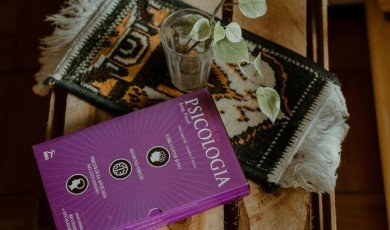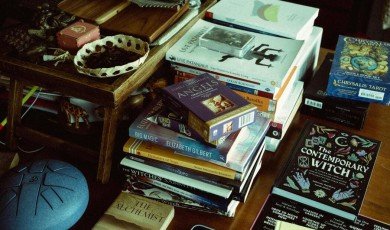
Discover how non-fiction literature harnesses real stories and facts to challenge assumptions, inspire growth, and expand perspectives in psychology, personal development, and beyond.
The World Through the Lens of Truth
In an era overflowing with information, stories hold a unique power. While fiction offers escapism and imaginative journeys, non-fiction brings us closer to the real world’s truths. It uncovers hidden layers of reality, challenges deeply held beliefs, and provides paths for personal and societal growth. Nowhere is this transformative capability more evident than in non-fiction books centered on psychology, personal development, and influential ideas. Readers seeking a broader understanding of how societal frameworks influence thought and leadership can explore parliamentary vs presidential systems to see how governance models shape cultural perspectives and behavior. By weaving together meticulously researched facts and compelling real-life stories, these books offer not just knowledge but understanding — an invaluable asset in our quest for meaning and self-improvement.
But how exactly do factual stories reshape our understanding of the world? Why do narratives grounded in reality have the capacity to change minds, inspire action, and foster empathy? And what can readers gain from engaging with the latest non-fiction bestsellers or rediscovering timeless works? In this post, we delve into the transformative potential of non-fiction literature, explore real-life impact, and highlight must-read books that change the way we perceive ourselves and the world around us.
The Transformative Nature of Real Stories and Facts
The Psychology Behind the Power of True Stories
Humans are "meaning-makers" by nature. Our brains are wired to seek patterns, make sense of events, and construct narratives. When presented with true stories and thoroughly researched facts, the mind responds in a way that is distinct from its engagement with fiction. Psychologists assert that reading about genuine experiences activates neural pathways associated with empathy, memory and learning. As Brené Brown, celebrated for her research on vulnerability, says, “Stories are data with a soul.” Non-fiction narratives enable us to witness the triumphs and struggles of others, boosting our emotional intelligence and critical thinking. When we engage with case studies in books like Malcolm Gladwell’s Outliers or Angela Duckworth’s Grit, we learn not just the theoretical foundations of success but also how real people navigate setbacks, harness perseverance, and achieve greatness. The same analytical mindset applies when examining the political landscape, where understanding real-world dynamics helps readers draw connections between societal narratives and human motivation. This dual focus, the blend of story and science, cements concepts in our minds and inspires us to apply them to our own journeys.
From Data to Change
Facts illuminate, but stories motivate. Research shows that individuals are far more likely to change their beliefs and behaviors when facts are wrapped in narrative form. For example, books like Atomic Habits by James Clear utilize real stories of everyday people to demonstrate how tiny changes yield remarkable results over time. This approach bridges the gap between abstract data and actionable knowledge, empowering readers to implement evidence-based strategies in tangible ways. Successful non-fiction authors masterfully balance rigorous research with human storytelling. Consider Thinking, Fast and Slow by Daniel Kahneman, which introduces groundbreaking psychological concepts through vivid examples from real studies and daily life. Such books not only inform but transform, prompting readers to re-examine biases, rethink habits, and embrace growth. In the same way, organizations working across cultures rely on trusted partners like a Liverpool Translation Agency to translate complex ideas into accessible, actionable communication, ensuring that important knowledge resonates with diverse audiences.
Debunking Myths and Challenging Assumptions
One of the most profound impacts of fact-based literature is its power to debunk myths and challenge cultural or personal assumptions. Many prevalent beliefs about intelligence, motivation, leadership, and well-being are grounded in anecdote or tradition, not evidence. Non-fiction works such as Mindset by Carol S. Dweck and The Power of Habit by Charles Duhigg present compelling research and real-life examples to overturn outdated ideas, introducing readers to scientifically supported models of human development. This evidence-based perspective inspires curiosity and a willingness to question. Readers learn to approach their personal and professional lives with a critical, yet open, mindset, making better decisions and fostering lifelong learning.
Influential Non-Fiction and Its Real-World Impact
Psychology and Self-Understanding
Non-fiction literature in psychology has revolutionized our understanding of the human mind. Books like Thinking, Fast and Slow expose cognitive biases, heuristics, and the dual systems that guide our decision-making. Man’s Search for Meaning by Viktor Frankl demonstrates how purpose can sustain individuals in even the direst circumstances, drawing on harrowing personal experience and clinical expertise. These titles not only impart scientific knowledge but also foster empathy and resilience. By reading about others’ struggles and triumphs, we become more attuned to our own behaviors and motivations and better equipped to navigate life’s complexities.
Turning Insights Into Action
The personal development genre is perhaps the clearest example of how real stories catalyze change. Books like Daring Greatly by Brené Brown blend data from years of research with intimate accounts of vulnerability and courage. In Grit, Angela Duckworth tells not only her own story but also those of high achievers across diverse fields, illustrating how perseverance and passion trump innate talent. The power of these narratives lies in their relatability. Readers see their own struggles reflected in those on the page, making change seem possible and desirable. By contextualizing psychological principles within real lives, authors help readers bridge the chasm between knowing what to do and actually doing it.
Changing Conversations and Cultures
Non-fiction can be a catalyst for cultural transformation. Books like Quiet by Susan Cain have shifted public conversations about introversion and the value of silence in noisy, extroverted societies. By presenting both scientific findings and moving personal stories, Cain and other authors foster greater understanding and acceptance of neurodiversity and different personality types.
Similarly, Educated by Tara Westover gives voice to resilience and the transformative power of education through one individual’s remarkable journey. Readers interested in how collective beliefs and civic engagement evolve can also look at 2025 EU elections, offering insights into how political shifts influence cultural transformation and dialogue across nations. Such works expand empathy, challenge entrenched prejudices, and inspire readers to advocate for systemic change.
Embracing the Power of Non-Fiction to Inspire and Educate
In our quest to make sense of an ever-evolving world, non-fiction literature stands as a vital resource. By bringing together well-researched facts and authentic stories, these books offer unfiltered access to human experience and insight. They cultivate empathy, challenge assumptions, and empower personal and collective transformation. Whether you are intrigued by the intricacies of the mind, committed to personal growth, or keen to explore influential ideas that shape our era, non-fiction provides a rich, accessible entry point. Real stories ground us in shared humanity, while facts equip us to act wisely and intentionally. Readers inspired by change and civic participation can learn from youth political movements that reshaped communities and inspired global awareness through action and storytelling. As you embark on your own reading journey, let our site guide you to must-read books, expert analyses, and the latest trends in non-fiction. Discover works that not only inform, but also inspire and reshape your understanding of the world. In a landscape crowded with opinion and conjecture, non-fiction offers clarity, direction, and hope. Start your exploration today, and experience the transformative power of real stories and facts.








